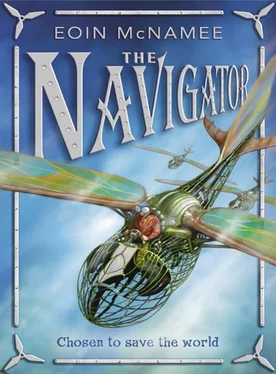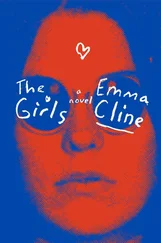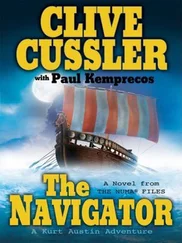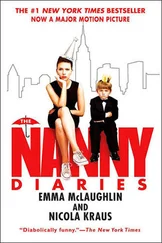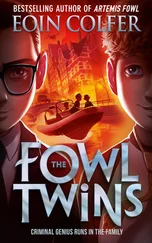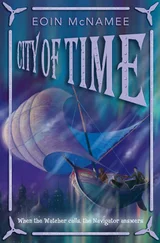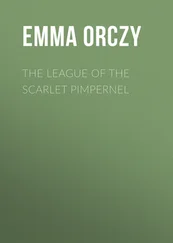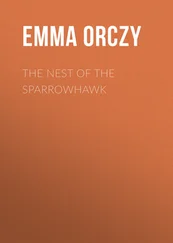EOIN McNAMEE

Dedication Dedication CHAPTER ONE CHAPTER TWO CHAPTER THREE CHAPTER FOUR CHAPTER FIVE CHAPTER SIX CHAPTER SEVEN CHAPTER EIGHT CHAPTER NINE CHAPTER TEN CHAPTER ELEVEN CHAPTER TWELVE CHAPTER THIRTEEN CHAPTER FOURTEEN CHAPTER FIFTEEN CHAPTER SIXTEEN CHAPTER SEVENTEEN CHAPTER EIGHTEEN CHAPTER NINETEEN CHAPTER TWENTY CHAPTER TWENTY-ONE CHAPTER TWENTY-TWO CHAPTER TWENTY-THREE CHAPTER TWENTY-FOUR CHAPTER TWENTY-FIVE CHAPTER TWENTY-SIX About the Author Copyright About the Publisher
For Owen and Kathleen
Cover
Title Page EOIN McNAMEE
Dedication Dedication Dedication CHAPTER ONE CHAPTER TWO CHAPTER THREE CHAPTER FOUR CHAPTER FIVE CHAPTER SIX CHAPTER SEVEN CHAPTER EIGHT CHAPTER NINE CHAPTER TEN CHAPTER ELEVEN CHAPTER TWELVE CHAPTER THIRTEEN CHAPTER FOURTEEN CHAPTER FIFTEEN CHAPTER SIXTEEN CHAPTER SEVENTEEN CHAPTER EIGHTEEN CHAPTER NINETEEN CHAPTER TWENTY CHAPTER TWENTY-ONE CHAPTER TWENTY-TWO CHAPTER TWENTY-THREE CHAPTER TWENTY-FOUR CHAPTER TWENTY-FIVE CHAPTER TWENTY-SIX About the Author Copyright About the Publisher For Owen and Kathleen
CHAPTER ONE
CHAPTER TWO
CHAPTER THREE
CHAPTER FOUR
CHAPTER FIVE
CHAPTER SIX
CHAPTER SEVEN
CHAPTER EIGHT
CHAPTER NINE
CHAPTER TEN
CHAPTER ELEVEN
CHAPTER TWELVE
CHAPTER THIRTEEN
CHAPTER FOURTEEN
CHAPTER FIFTEEN
CHAPTER SIXTEEN
CHAPTER SEVENTEEN
CHAPTER EIGHTEEN
CHAPTER NINETEEN
CHAPTER TWENTY
CHAPTER TWENTY-ONE
CHAPTER TWENTY-TWO
CHAPTER TWENTY-THREE
CHAPTER TWENTY-FOUR
CHAPTER TWENTY-FIVE
CHAPTER TWENTY-SIX
About the Author
Copyright
About the Publisher
There was something different about the afternoon. It seemed dark although there wasn’t much cloud. It seemed cold although the sun shone. And the alder trees along the river stirred and shivered although the wind did not seem to blow. Owen came over the three fields and crossed the river just below the Workhouse on an old beech tree that had fallen several years before, climbing from branch to branch with his eyes almost closed, trying not to look down, even though he knew the river was narrow and sluggish at that point, and that there were many trailing branches to cling on to if he fell. Only when he reached the other side did he dare to look down, and even then the black, unreflecting surface seemed to be beckoning to him so that he turned away with a shudder.
He had woken early that morning. It was Saturday and he had tried to get back to sleep, but that hadn’t worked so he had got up and got dressed. Before his mother could wake, Owen had slipped out of the house and down to Mary White’s shop. Mary had run the shop for many years. It was small and packed with goods and very cosy, with good cooking smells coming from the kitchen behind. Mary, who was a shrewd but kindly woman, smiled at Owen when he came in. Before he had even asked, she handed him a packet of bacon, milk and half a dozen eggs. He had no money, but then he never had. Mary used to write down what he got in a little book, but now she didn’t even bother with that. As always, she could see his embarrassment.
“Stop looking so worried,” she said. “You’ll pay it back some day. Besides, you have to be fed, for all our sakes.”
She often said mysterious things like that, telling him that it was a pleasure and a privilege to look after him. Owen didn’t know what she meant, for no one else seemed to think that way. Sometimes, when he walked through the little town at the bottom of the hill, you would think he had a bad smell the way people shied away from him and whispered behind their hands. It was the same in school. Sometimes, it seemed the only reason that anybody ever talked to him was in order to start a fight. He knew that he had no father, and that his clothes were older and more worn than the other boys and girls at the school, but something seemed to run deeper than that.
“It’s not that they don’t like you,” Mary said, in her curious way. “They see something in you that both frightens them and attracts them as well. People don’t like things that they don’t understand.”
When Owen got back to the house, he cooked the bacon and eggs and took them up to his mother. She woke and smiled sleepily at him, as if awakened from a pleasant dream, then looked around her and frowned, as if bad old memories had come flooding back. He handed her the tray and she took it without thanking him, a vague, worried look on her face. She was like that most of the time now.
Then there was the photograph. It had been taken shortly after Owen had been born. His father was holding him in the crook of one arm, his other arm around Owen’s mother. He was dark-haired and strong and smiling. His mother was smiling as well. Even the baby was smiling. The sun shone on their faces and all was well with the world. After his father’s death, Owen’s mother had taken to carrying the photograph everywhere, looking at it so often that the edges had become frayed. As a reminder of happier times, he supposed. Then one day he noticed that she hadn’t looked at it. “Where is it?” he had asked gently. “Where is the photograph?”
She looked up at him. “I lost it,” she’d said, and her eyes were full of misery. “I put it down somewhere and I don’t remember…”
He made a bacon sandwich for himself and took it to his room where he sat on his wooden chest to eat it. The lock on the trunk was missing and it had never been opened. There was a name on it, J M Gobillard et Fils. It sounded strange and exotic and always made him wish that he was somewhere exciting. Owen knew that his father had brought it back from somewhere, and had insisted on it being put in his room, but that was all he knew about it.
He looked around. The only things he really owned in the world were in that room. The old chest. A guitar with broken strings. A dartboard. A set of cards and a battered CD player. There was a replica Spitfire hanging on fishing line from the ceiling. There were a few books on a broken bookcase, a pile of old jigsaws and a Game Boy.
Owen stood up on the chest and scrambled through the window and on to the branch of a sycamore tree. He swung expertly to the ground from a low branch and set off across the fields.
Owen crossed the burying banks below the mass of the old Workhouse and climbed the sloping bank, passing through the long, tree-lined gully that split the slope. It wasn’t that he was hiding from anyone. He just liked the idea of being able to move about the riverbank without anyone seeing him. So he found routes like the gully, or tunnels of hazel and rowan, or dips in the ground that rendered you suddenly invisible. The riverbank was ideal for this. There were ridges and trenches and deep depressions in the ground, as though the earth had been worked over again and again.
It took ten minutes to skirt the Workhouse. It was a tall, forbidding building of cut stone perched on an outcrop of rock which towered above the river. It had been derelict for many years and its roof had fallen in, but something about it made Owen shiver. He had asked many people about its history, but they seemed reluctant to talk. He had asked Mary White about it.
“I bet there are ghosts,” he said. She leaned forward in the gloom of her small shop and met his gaze with eyes that seemed suddenly stern and blue in a wrinkled face.
Читать дальше
